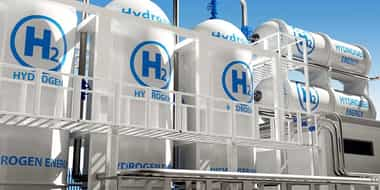
Apr 17, 2017
Blog Energy & Sustainability Potential to Create Electricity from Waste Heat Warms Up
Thermoelectric technology offers great potential as an alternative and environmentally friendly technology for harvesting and recovering heat, which is then converted into electrical energy using thermoelectric generators.
But potential doesn't pay the bills, as the saying goes. However, a new project led by the Department of Energy’s Lawrence Berkeley National Lab (Berkeley Lab) may save the state of California $385 million per year. That'll pay a few bills.
In partnership with Alphabet Energy, a 2009-start-up company that commercializes waste heat recovery technology, Berkley Lab seeks to create a cost-effective thermoelectric waste heat recovery system to reduce both energy use in the industrial sector and electricity-related carbon emissions. California could save 3.2 million mega-watt hours per year in energy while also increasing electrical reliability.
The potential to create electricity from waste heat in California remains untapped due to the lack of suitable waste-heat-to-electricity conversion technology, says Ravi Prasher, director of Berkeley Lab’s Energy Storage and Distributed Resources Division.
"Thermoelectrics is one of the most promising technologies for waste heat conversion out there, but the biggest challenge has been to find a reliable and cost effective material that can work at high temperatures," Prasher says.
Most current thermoelectric materials are limited by several factors, including high cost, low efficiency, and the inability to operate reliably at temperatures above 400 degrees Celsius.
Prasher and colleague Vi Rapp, a mechanical research scientist, are collaborating with Alphabet Energy to develop a cost-effective process for creating an advanced thermoelectric material constructed from silicon nanowire arrays.
Thermoelectrics harvest exhaust heat from engines, furnaces, and other sources of waste heat and convert it to useful energy without generating additional greenhouse gas emissions.
Commercially available thermoelectrics achieve less than 5% efficiency in converting heat to electricity. The technology has already seen some market traction in the oil and gas and automotive industries.
Alphabet Energy is developing advanced thermoelectric materials based on silicon nanowires with conversion efficiencies of 10% or greater and the ability to operate at temperatures up to 800 degrees Celsius.
Rapp expects the increase in efficiency to accelerate other market opportunities in waste-heat-to-power. "For example, an advanced thermoelectric system could improve remote power generation technology, bringing electricity to places without grid access or reliable solar energy," he says.
The higher operating temperature also creates new possibilities like increasing the power produced from capturing high-temperature waste heat from gas flares.
“Our objective is to develop a new system that has very few parasitic losses, is more compact, is modularized for a broad scale of distributed applications, and will reliably produce additional electricity with almost no maintenance cost or operator involvement for many years,” Prasher says. “We believe it will make waste-heat-to-power viable and affordable in a wider spectrum of applications.”
The project was funded by a $2-million grant from the California Energy Commission's Electric Program Investment Charge program, which funds clean energy innovation to reduce pollution, foster economic development, and meet the state’s climate goals.

Electrical switches—devices that control the flow of electricity—are the backbon...

As the world accelerates toward net-zero emissions, hydrogen, and ammonia have e...

Hydrogen technology is widely used across industries like glass, fertilizer, met...

We are your trusted research partner, providing actionable insights and custom consulting across life sciences, advanced materials, and technology. Allow BCC Research to nurture your smartest business decisions today, tomorrow, and beyond.
Contact UsBCC Research provides objective, unbiased measurement and assessment of market opportunities with detailed market research reports. Our experienced industry analysts assess growth opportunities, market sizing, technologies, applications, supply chains and companies with the singular goal of helping you make informed business decisions, free of noise and hype.